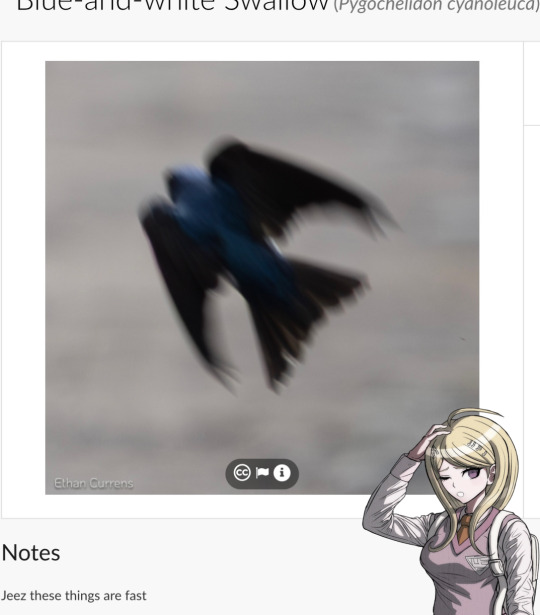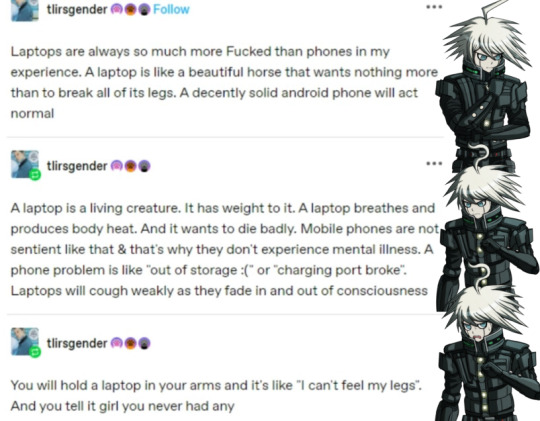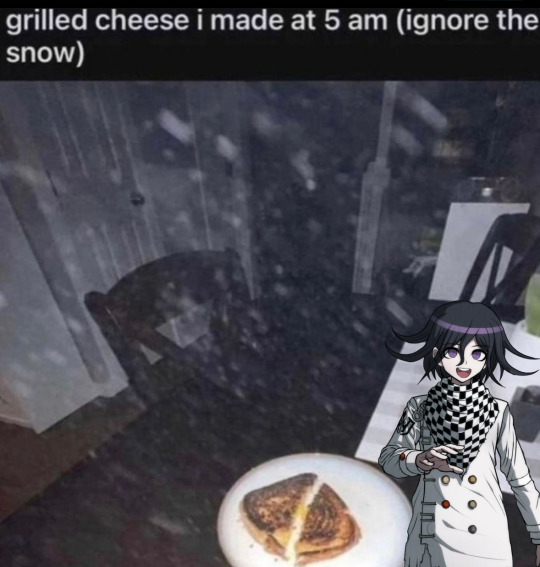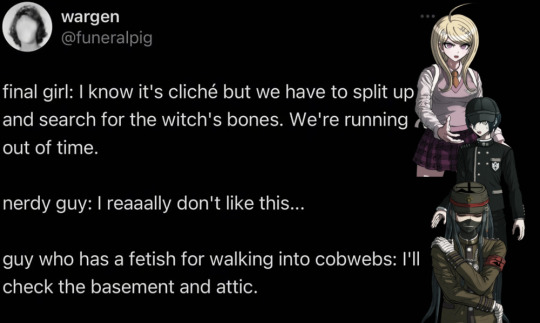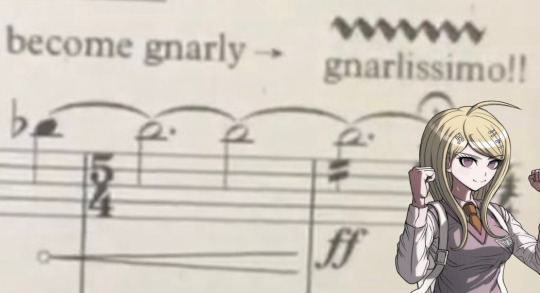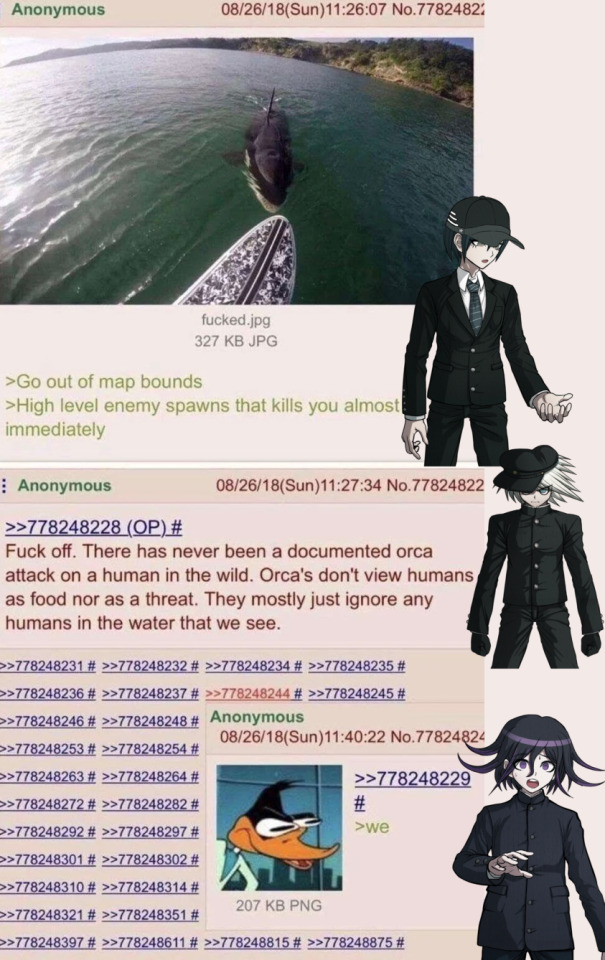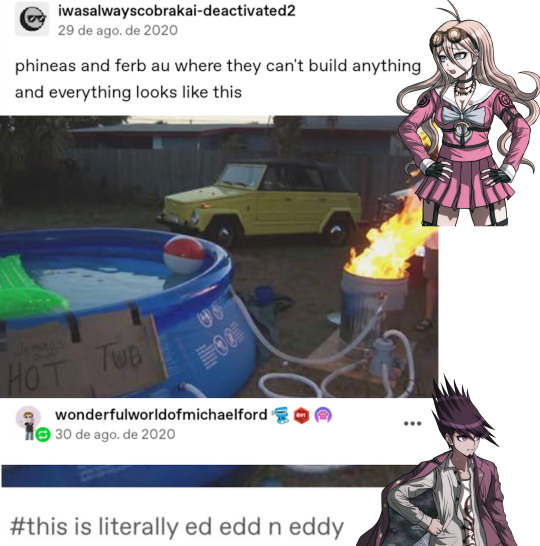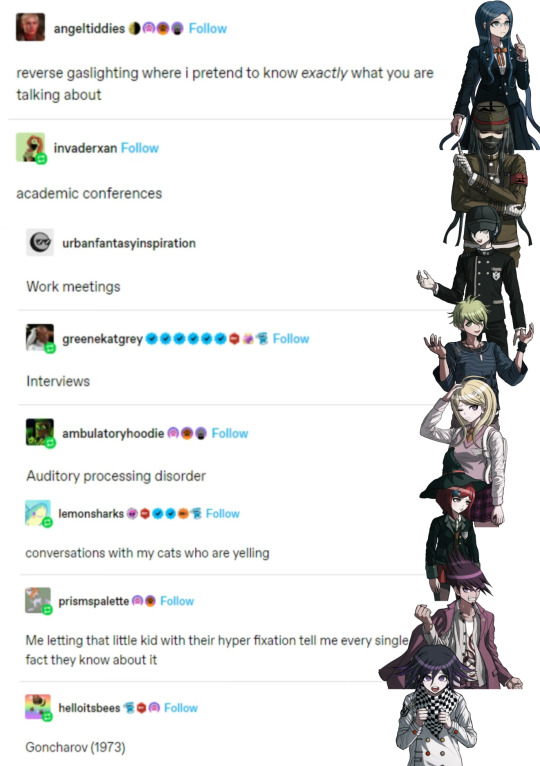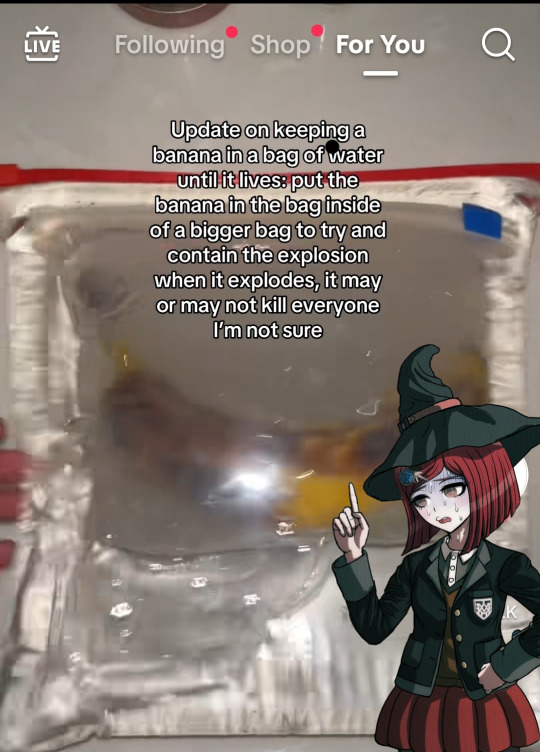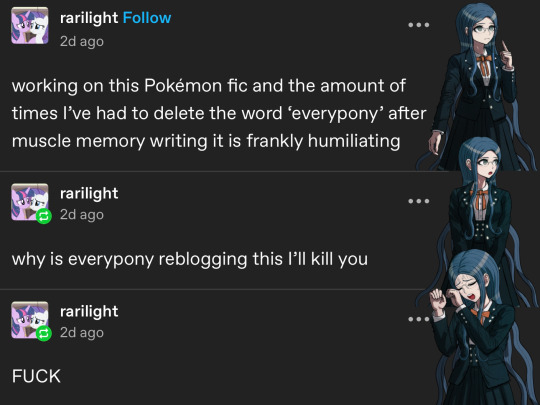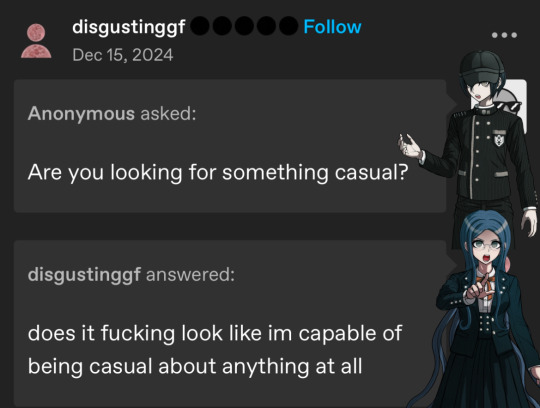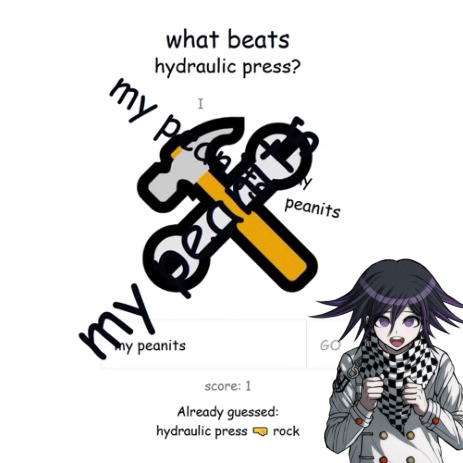abby. 24. holder of the most annoying hyper-fixations known to man
Don't wanna be here? Send us removal request.
Text

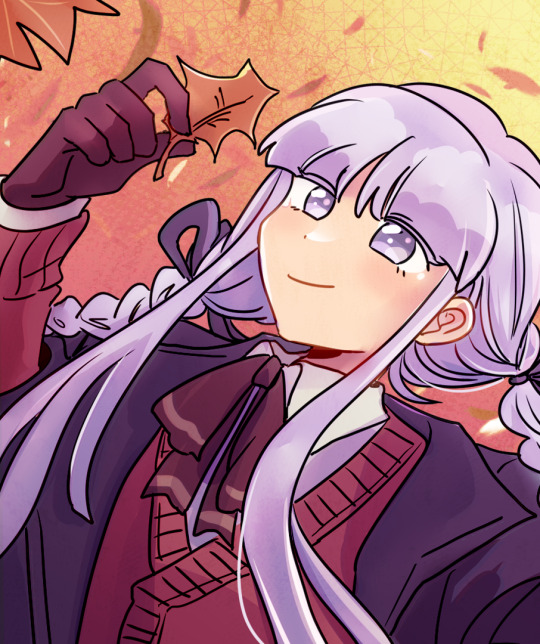
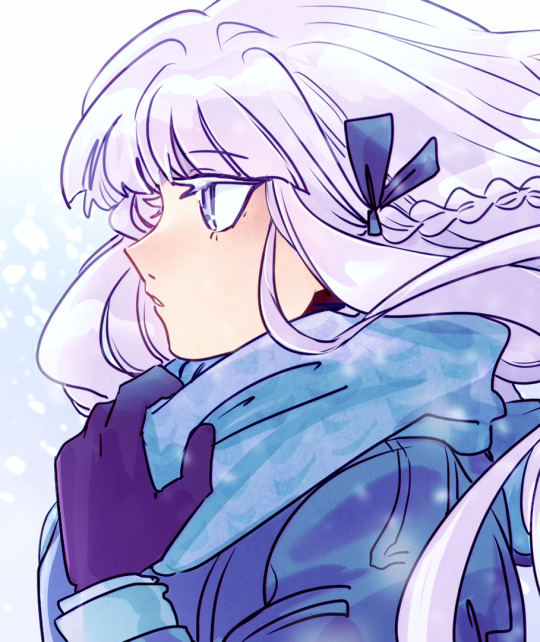
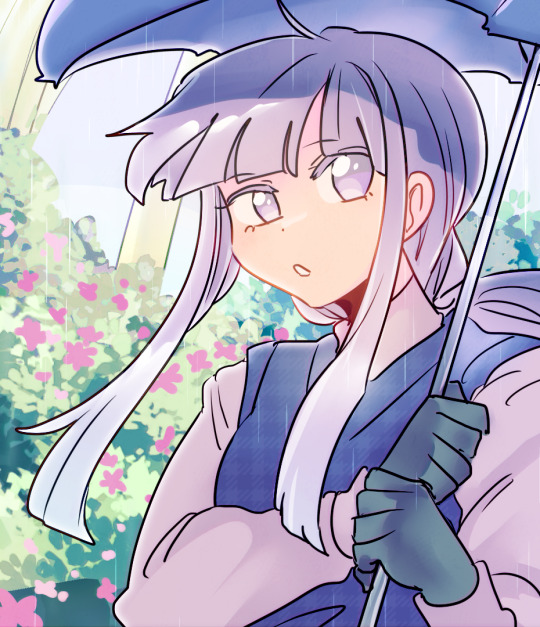
seasonal kyokos I drew for the @kyokozine last year!!💜
2K notes
·
View notes
Text

“it’s ok…a shining future will always be waiting for you.”
3 notes
·
View notes
Text


the “you better not mess with my gang” tiktok sound but it’s Them
#this was practice for different poses and expressions but I love them#danganronpa#fanart#mine.png#maki harukawa#shuichi saihara#kaito momota#kokichi oma
6 notes
·
View notes
Text
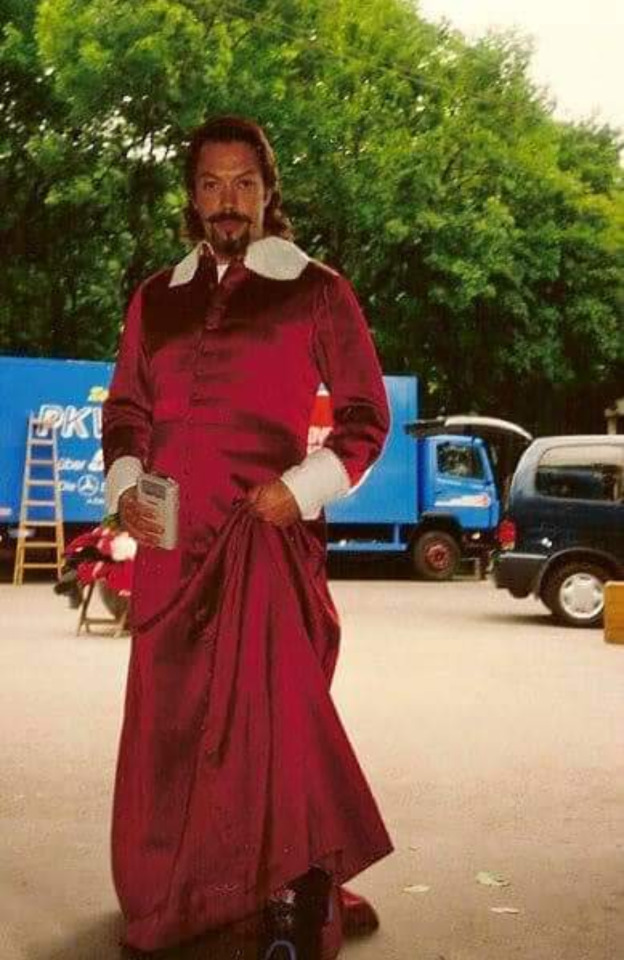
Tim Curry with his GameBoy on the set of The Three Musketeers (1993)
86K notes
·
View notes
Text
Let's Talk About Kokichi and the Importance of Metanarrative
Or: Kokichi Ouma as a Cautionary Tale on the Pervasive Nature of Prejudice
Had a very enriching discussion in the Danganronpa Alumni server this morning, and for the first time I was able to articulate my thoughts on why I feel like there is so much conflict in the fandom's perception of Kokichi and what his purpose is in the story of V3.
So let's talk about it!
A Quick Sidebar on Terminology
So, before going into this, I want to first define some terms I'm going to be using because I want to avoid misunderstandings.
First, this analysis is purely from a Doylist perspective, exploring the author's intent and general themes. In that sense, I especially want to define what "narrative" means in the context I'm going to be using it, because I feel like it is something that can be misrepresented when we're talking about a story.
To me, "narrative" is less about the actual events and timeline and characters, and more about the exact themes and discussion the writer is intending to have with the reader. The characters are essentially sockpuppets to create an example of the type of thing the writer wishes to discuss and the themes they want to explore and for the reader to consider. It's a question of craft and figuring out what the author's intention was behind the choices they made in how the story played out.
What's all this about metanarrative, then?
Well, metanarrative in general is to speak to a narrative within an existing narrative, and I feel like that is a very important thing that lots of people overlook when engaging in V3's narrative. Metanarrative is an inescapable part of V3's entire story, because there are effectively TWO writing teams and viewer relationships to consider:
Kodaka and the devs who made the Danganronpa V3 video game, played by us, the player
Team Danganronpa as the team that made the Danganronpa TV show, viewed by the audience within the world the game takes place in, and the mask that Kodaka wears to tell this story
And with that in mind, it becomes a lot more difficult to detangle V3 in particular from an analytical standpoint.
What does this have to do with Kokichi?
Kokichi is, understandably, a very divisive character. No one in the fandom can seem to agree what his Deal is, and in a way that's kind of the Point to him and his arc as a character. Within the universe, it is left ambiguous at best, and as Shuichi says, the "truth is in the eye of the beholder."
... Is it, though?
So, from a narrative perspective, what is Kokichi's story REALLY about? It's about a lot of things. How lies aren't inherently evil, how sometimes people who just want what's best end up doing bad things to achieve something better, how quickly paranoia can change someone for for the worse. All of these things are true, I think. There is no one singular answer.
But today, in the context of metanarrative, I want to talk about Kokichi's narrative commentary on prejudice.
The Book Report Part
At the core of things, Kokichi's arc as a narrative, to me, is the exploration of the pervasive and predatory nature of prejudice and the disempowerment of the disenfranchised, and how prejudice can force people to feel like they have no choice but to become what is expected of them. It's a commentary on how a discrepancy in beliefs, ways of seeing and approaching the world, can be a matter of life and death when everyone arbitrarily decides that your way of thinking is inherently Wrong.
Note that I didn't mention any actual events or characters in that explanation, because narrative is a discussion the writer is trying to have with the reader.
And the reason I approach this from a Doylist narrative perspective is because I feel like a lot of people get very emotionally charged over Kokichi because of his discrimination. The characters are overly cruel to him, even when he does nothing inherently wrong, like in Chapter 1 where he primarily takes a backseat for the entirety of the chapter, including the investigation and the trial.
People who dislike Ouma laugh at his expense and claim that he deserved it. People like Ouma become outraged by this treatment and feel it is excessive and unnecessary. And when you approach it from the Watsonian context of looking purely at what it is he is doing and whether it makes sense for a random person to be treated in such a way for such behaviors, it is excessive and unnecessary.
But if that's the case, then why did Kodaka make it that way?
Many people feel like Kodaka must hate Kokichi as a character and is deliberately punishing him for existing, and... I feel like that's a bit shortsighted. Kodaka and the rest of the dev team are professionals after all. Kodaka is known for very nuanced approaches to social commentary through his work, especially Danganronpa, with its themes of restorative justice, critique of punitive justice, and exploration of the nebulous hierarchy of Talent.
So then why?
It's because the excessive and unnecessary prejudice is the point.
In the context of Kokichi's story through the lens of a narrative about prejudice and how arbitrary it is, a lot of the narrative choices made to create this atmosphere that Kokichi is being forced into the box of being an antagonistic person despite starting out as a goof and a bit of a weirdo with a heart of gold is exactly the kind of feeling that Kodaka is trying to instill in the reader. He is deliberately trying to make you uncomfortable and outraged by making it feel like Kokichi is being wrongly accused.
It permeates the entire story, it's in every nook and cranny of every character's dialogue, every thought Shuichi has, that there is some nebulous level of distrust around Kokichi and only Kokichi, which turns into a self-fulfilled prophecy as Kokichi begins to feel trapped by these preconceptions and starts acting accordingly. A very beautifully crafted simulation of confirmation bias that I feel like is a big part of what those who dislike Kokichi get caught up in, but that's not really what I want to get into in this post.
What I'm truly fascinated by with this is the way this prejudice is so pervasive that it seems to infiltrate even the narrative itself.
Where the Metanarrative Comes In
One of the things we discussed in the server was whether this aspect of the prejudice against Kokichi bleeding into non-character text is a narrative flaw, an issue of Kodaka's own prejudices bleeding into the story he was trying to tell. I feel like this was a bit of a misnomer for a few reasons.
First, an author's prejudices bleeding into a story is not inherently a flaw. In fact, I feel like that does a disservice to what art is. A story and a narrative is about what the creator wants to talk about. It's up to the reader to respond to that discussion in kind. That's just what art is. You as the reader cannot impose your own beliefs onto a work in conflict with that of the creator simply because you feel like they are wrong and then call that a flaw. You need to take the work and what it's saying for what it is, the creator's words and beliefs. It is not the creator's job to be politically or culturally correct for their audience at the detriment of whatever it is they are trying to say.
Second, and much more on-topic, it didn't really take into account what the "non-character text" in V3 actually is. There was a lot of conflating the prejudices seen in this text as Kodaka's own beliefs, because there was no character associated with them. I felt like part of the discussion was hanging heavily on this misconception that Kodaka's narrative intent was for Kokichi to be seen as evil, because that's what the "non-character text" pushes, and I just do not think that is true.
I feel like a common pitfall with V3 analysis is that a lot of the general "non-character" things in the game (physical descriptors, visual storytelling, basically anything that doesn't come directly out of a character's mouth or Shuichi's thoughs) are being mistakenly attributed to Kodaka, and as a result people are assuming that the prejudice against Kokichi is coming from Kodaka himself because he does not like Kokichi. I already said before that I don't feel like that's the case, but then if that's not the case, what is the prejudice in the non-character narrative doing there?
This is where I want to remind you that Kodaka isn't the only writer here. The non-character narrative is not really "non-character" at all. It is itself a character that Kodaka is playing.
It's Team Danganronpa talking the audience, trying their best to make you agree with them.
This is the metanarrative.
In that sense, I think that the concept of "Kokichi being evil" was Team Danganronpa's metanarrative intent, but not Kodaka's narrative intent.
And that turns into an extra layer to the narrative Kodaka is trying to tell about how pervasive and influential prejudice is in the world we live in, in the greater context of society. The fact that at the end of the day, people in power are the ones who choose who is Good and who is Bad, and Team Danganronpa? They wanted Kokichi to be Bad, for their own metanarrative of their TV show.
Do I think Kodaka hates Kokichi? No, not in the slightest. I think he loves Kokichi with all his heart, and that shows to me in how bad the story is at trying to convince the reader that he's bad. Because it's Team Danganronpa that doesn't like Kokichi. It's Team Danganronpa that got in over their heads and are scrambling to keep Kokichi under control.
And Team Danganronpa is the real villain here.
If you're not convinced that Kokichi is evil, that's the Point. You're not supposed to be convinced.
From that perspective, all of the excessive prejudice and discrimination against Kokichi from the very beginning makes perfect sense, because he was Team Danganronpa's chosen martyr as the rival, and if the audience didn't believe that he was evil? Well, they'd make them believe it. You as the player outside of this story, meanwhile, are having a completely different conversation with Kodaka, because Kodaka made Team Danganronpa the villain of this story, and in doing so has put heavy critique on what they are saying to their audience and, more importantly, the prejudices they have with regard to typecasting.
@sw33tl1es in the server summed it up very succinctly: "You are have to consider what Team Danganronpa is trying to say to the in-game audience Vs what Kodaka is trying to say to you."
That's why I feel like it's a bit shortsighted personally, to assume that non-character writing is inherently the writer's genuine beliefs, especially in a metanarrative like V3 where there is an entire second ghost writing team haunting it. Everything the writer puts into their work has a purpose, and while maybe that could be a sign of their own prejudice shining through, I do think it's important to consider the context from all angles. You need to assess the deeper intentions and meaning of the narrative the writer is trying to discuss with you, the reader.
Because otherwise you might end up stuck the other way around, with you holding prejudices against the writer while missing the forest for the trees.
63 notes
·
View notes
Text
what do people do if they’re not obsessed with anything
211K notes
·
View notes
Text
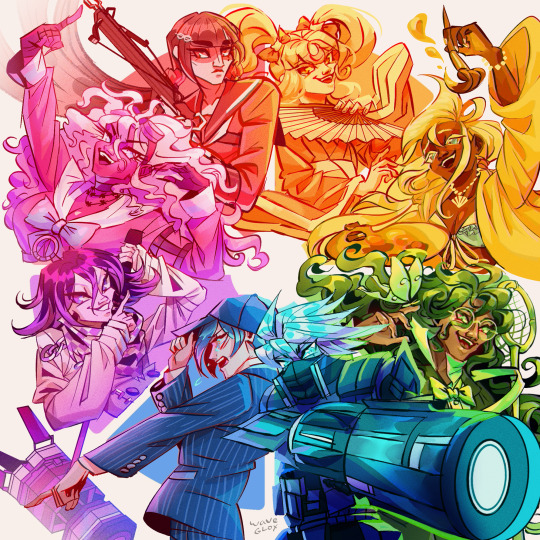
im a little late for the trend as usual so let's just say this is for pride month ok
658 notes
·
View notes
Text
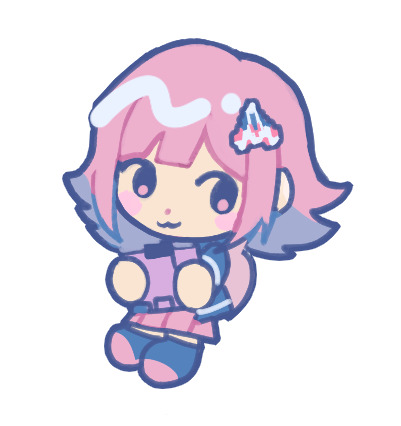

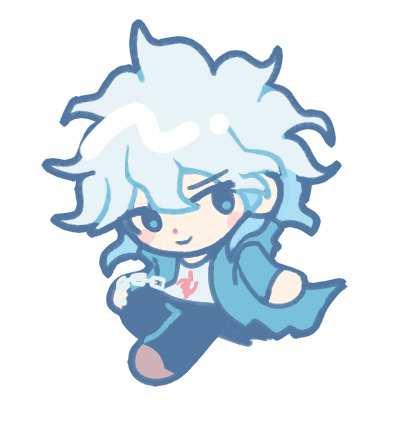
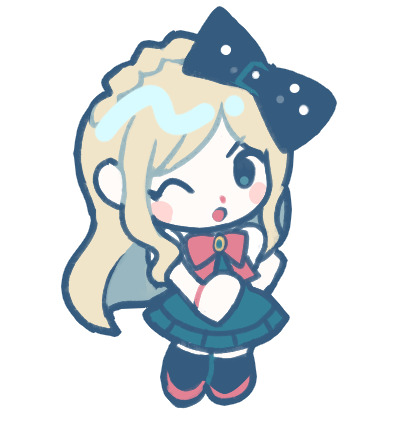

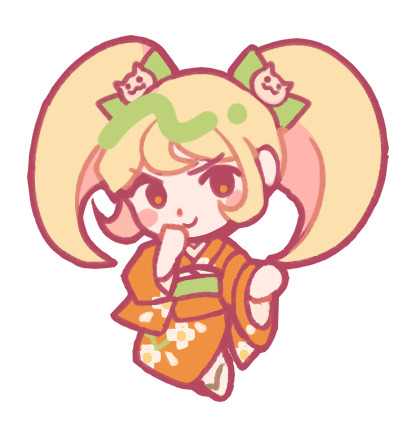
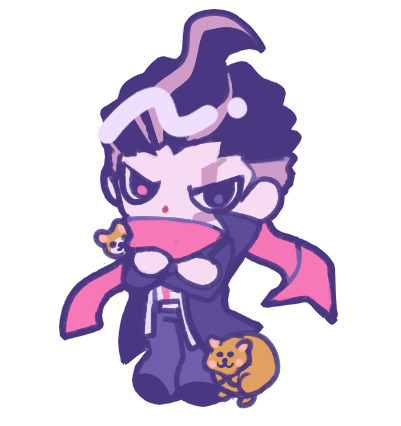


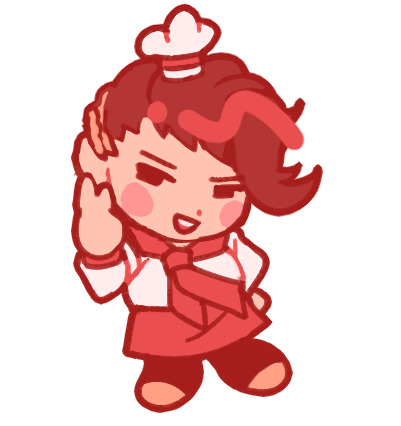



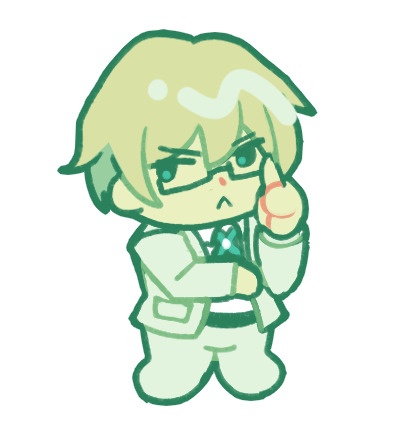
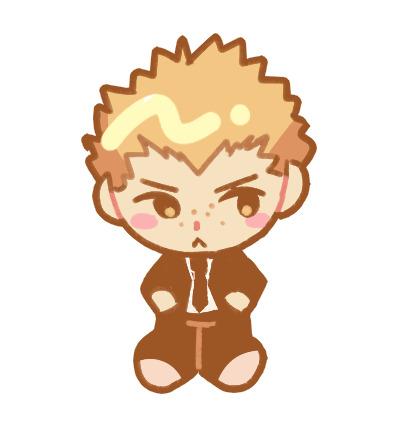
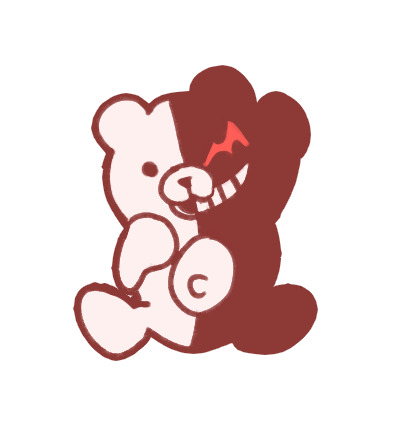


finished dr 2 chibis!
2K notes
·
View notes
Text

“no, that’s wrong!”
#i just think they're neat#mine.png#fanart#art#video games#danganronpa#danganronpa 2#nagito komaeda#hajime hinata
13 notes
·
View notes
Text
259 notes
·
View notes
Text
For the algorithm
40 notes
·
View notes
Text
This blog is my adult version of cutting pictures out of magazines and glueing them on to paper
29K notes
·
View notes
Text

On the way to school!
810 notes
·
View notes
Text
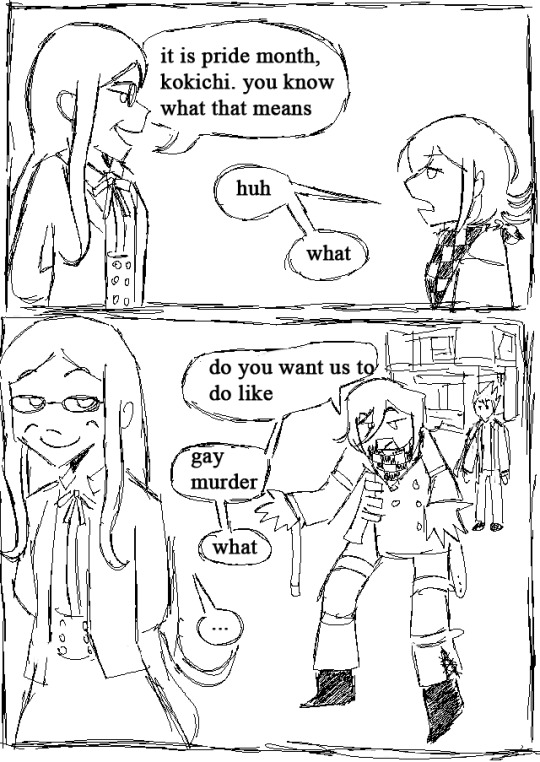
then they did gay murder
1K notes
·
View notes
Text




i found this scene in the game so moving i had to draw it
4K notes
·
View notes

